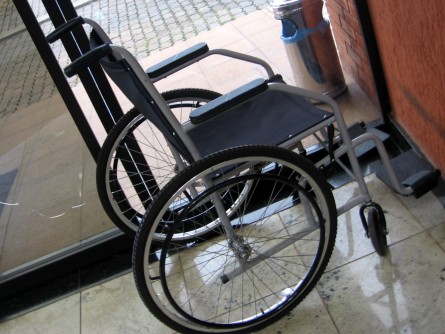Do Americans care about poverty? How do we measure that concern? The answer from those on the left is very simple: Our concern is measured by how much public money we spend to alleviate poverty and how much political pressure we exert in order to get that money spent.
Just check out the op-ed in Friday’s New York Times --“Obama Cares. Look at the Numbers”-- explaining how much the president worries about the poor. A greater percentage of his budget is spent on alleviating poverty, according to the authors, and so even though he may not talk about the poor as much as other presidents have (a questionable assertion by opponents to his left), he has shown his commitment.
Mr. Obama earmarked 17 percent of his budget for these needs, versus Mr. Clinton’s 12 percent and Jimmy Carter’s 8 percent. These presidents all faced economic challenges, although of different degrees and strength. Each was committed to the needs of the poor and the disadvantaged. But Mr. Obama made good on that commitment far more concretely.
A reasonable observer might wonder whether we should factor in the effectiveness of those efforts when measuring a president’s concern. After all, poverty reached its highest rates under the Obama administration and the income gap between whites and blacks has only widened.
But such questions would undermine the liberal assumption that giving people money will make them less poor. Instead we are supposed to ignore the rise in labor participation and the decrease in poverty that followed the 1996 welfare reform as well as the decrease in poverty that followed the implementation of work rules for welfare under the Giuliani administration in New York City.
And despite their lack of effectiveness, we are supposed to be outraged by the lack of political will supporting larger government transfers. Earlier this month, Pablo Eisenberg, a contributor to the Chronicle of Philanthropy, wrote: “In the last decade or so, nonprofits have stopped caring about the plight of the poor.” This is a rather strong statement and Eisenberg doesn’t offer much evidence for it beyond this: “Today, matters of poverty seem to be off the radar screen of nonprofits. That couldn’t be more evident than in the failure of nonprofits to rush to oppose the massive assault on food stamps now working its way through the House of Representatives.”
As if the major contribution of nonprofits to the alleviation of poverty and suffering in this country is their ability to lobby the federal government. From soup kitchens to work training programs to scholarships for underprivileged kids to marriage promotion and drug and alcohol rehabilitation, nonprofits do a lot more to lift Americans out of poverty than food stamps ever could.






